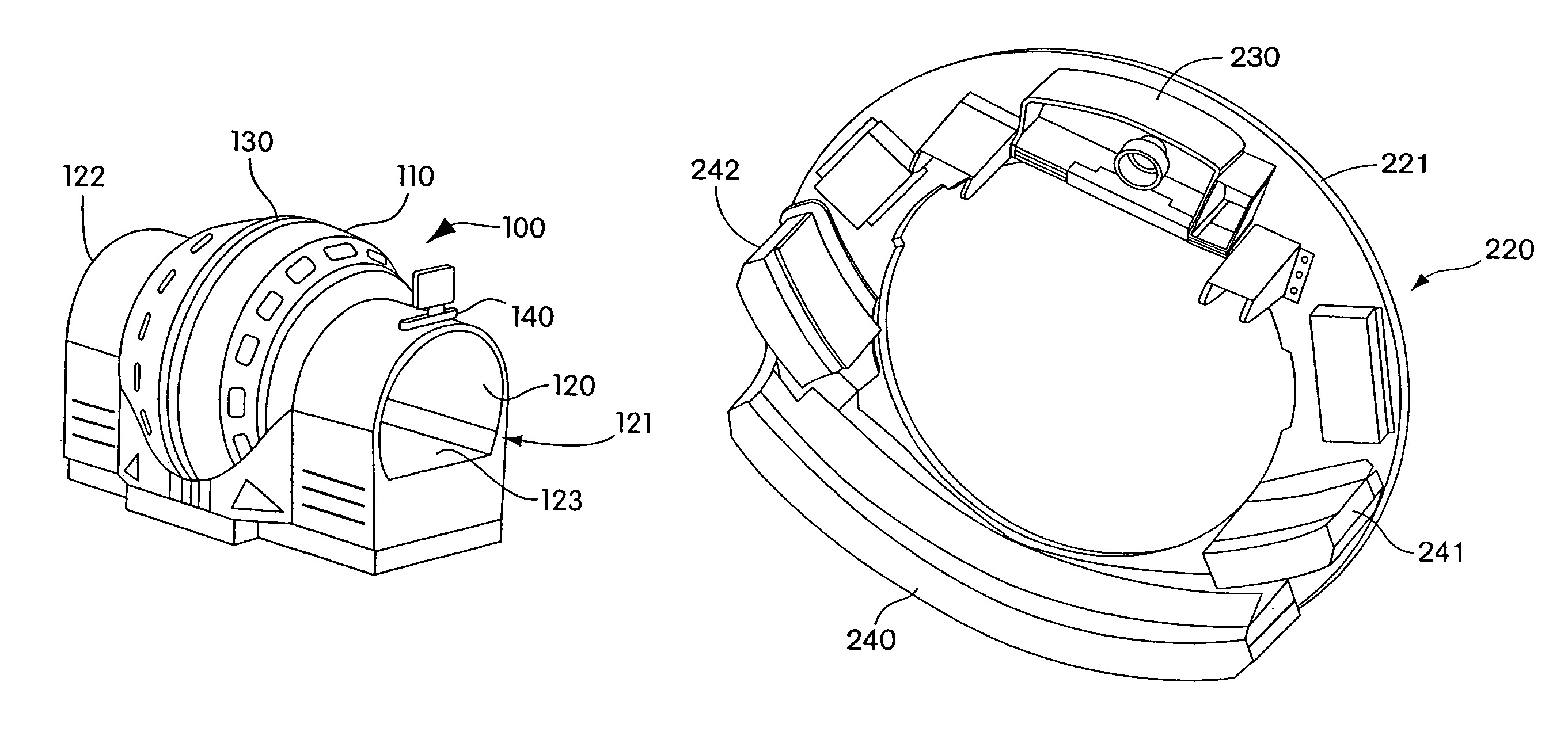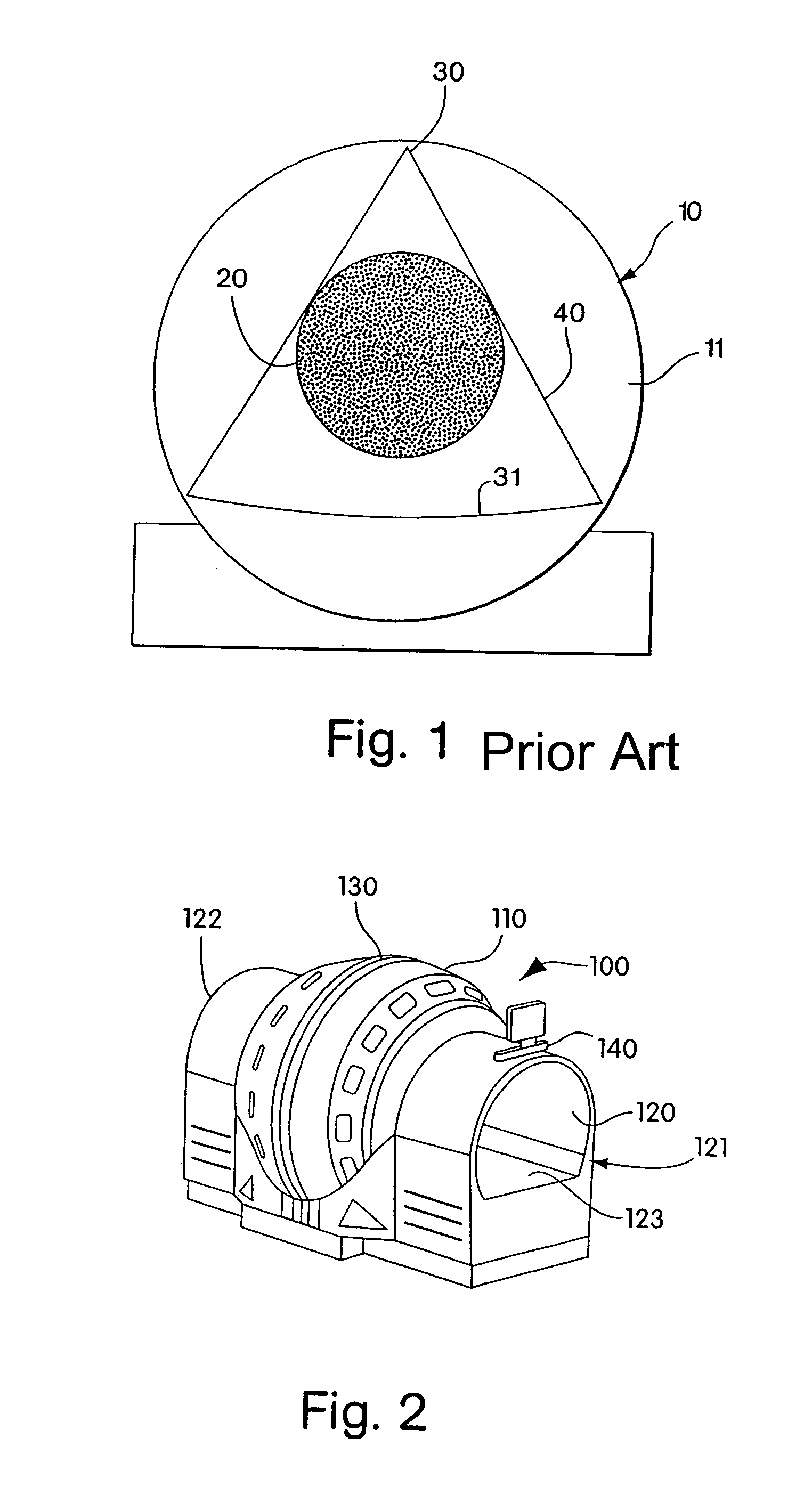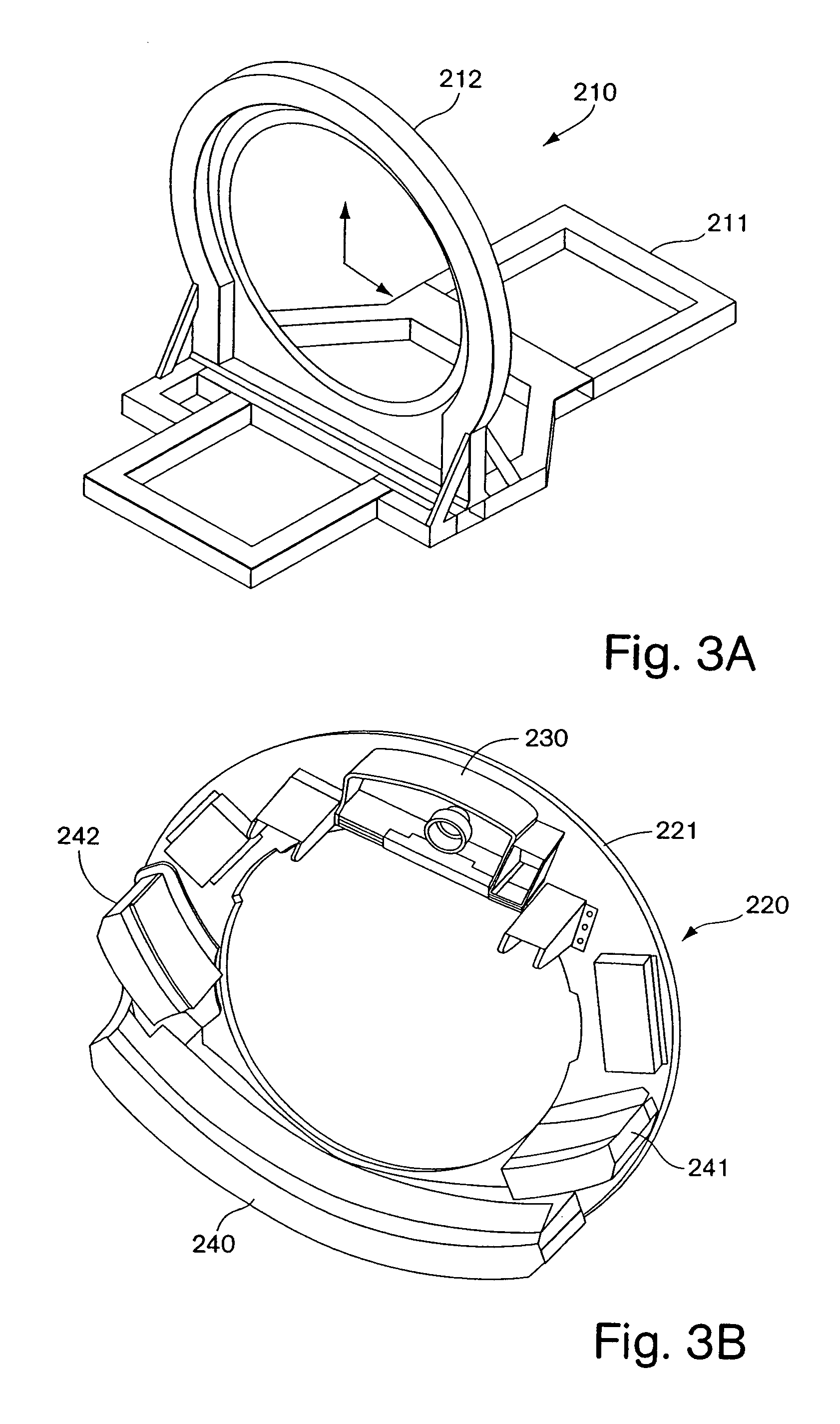Folded array CT baggage scanner
a baggage scanner and array technology, applied in the field of computed tomography (ct) scanner design, can solve the problems of cumbersome and expensive implementation of security measures using existing technology, increased labor intensity, and increased cost, and achieve the effect of reducing size, reducing labor intensity, and reducing cos
- Summary
- Abstract
- Description
- Claims
- Application Information
AI Technical Summary
Benefits of technology
Problems solved by technology
Method used
Image
Examples
Embodiment Construction
[0029]A CT scanner of the present invention has a more compact size than conventional scanners through the use of a wide angle x-ray source and a folded detector array, including sets of detector arrays at different distances from the x-ray source. FIG. 2 illustrates an embodiment of a CT scanner 100 according to an embodiment of the present invention. The CT scanner 100 includes a housing 110 with a substantially circular tunnel 120, there through. The tunnel 120 has an input end 121 and an output end 122. A conveyor 123 extends from the input end 121 to the output end 122 of the tunnel 120. For ease loading baggage, the conveyor may extend beyond the ends of the tunnel 120. Additionally, other conveyors may be positioned and used to transfer baggage to or from the conveyor 123 in the CT scanner 100. Coverings (not shown), such as lead lined rubber or fabric, may be placed within the tunnel 120 or at the input end 121 and output end 122, to provide x-ray shielding. The CT scanner 1...
PUM
 Login to View More
Login to View More Abstract
Description
Claims
Application Information
 Login to View More
Login to View More - R&D
- Intellectual Property
- Life Sciences
- Materials
- Tech Scout
- Unparalleled Data Quality
- Higher Quality Content
- 60% Fewer Hallucinations
Browse by: Latest US Patents, China's latest patents, Technical Efficacy Thesaurus, Application Domain, Technology Topic, Popular Technical Reports.
© 2025 PatSnap. All rights reserved.Legal|Privacy policy|Modern Slavery Act Transparency Statement|Sitemap|About US| Contact US: help@patsnap.com



